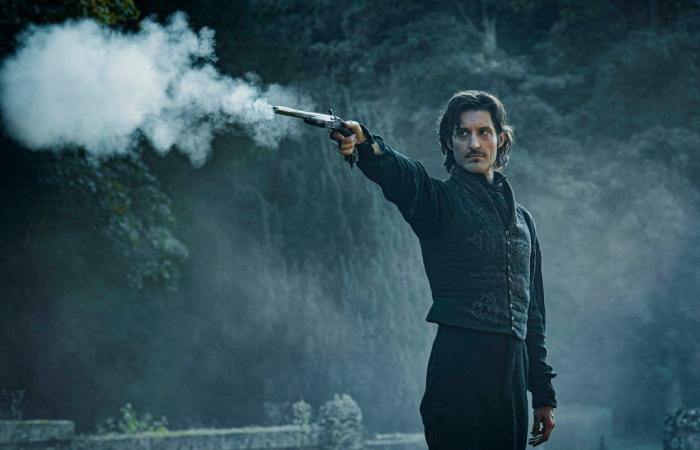Have you noticed? Since the European elections, we have resurrected this usual figure of literature: the traitor. In this theater that is our little political world, betrayal has continued to impose itself everywhere, on the left as well as on the right. To all those who feel betrayed and would like to treat themselves to the leisure of some reprisals, we have only one piece of advice to give: reread The Count of Monte Cristoa real manual for getting revenge with panache.
If you have the tormented soul of a man broken by human perfidy and feel the pangs of injustice like an open wound in the establishment of Edmond Dantès, thrown into an abyss of despair by the machinations of those he believed to be his friends, remember this: healing could well come through just revenge.
In the first pages of the story, Alexandre Dumas draws us into a world where innocence is sacrificed on the altar of ambition and jealousy. Danglars, Fernand, Villefort, all driven by vile passions, weave a web of intrigue around Dantès, imprisoning him in a net of slander. Betrayal is not only a sordid maneuver, but a real enterprise of destruction. The writer shows us that vengeance can only be born from the acute awareness of the injustice suffered, that to strike with justice, one must first understand and gauge one’s enemies in depth.
The first lesson that this manual of vengeance teaches us is that suffering must be assumed, experienced in all its intensity. Dantès’ arrest, his unjust imprisonment at the Château d’If, and the loss of everything he cherished are not simple trials, but initiations, obligatory passages. It is in this pain that Dantès’ determination is forged, that the outline of his response gradually takes shape. The reader, carried away by this turmoil, learns that revenge, to be complete, must be based on a will to transmute this pain into creative energy.
Dumas also teaches us that revenge is not just a matter of resentment. It is an undertaking that requires careful preparations and a skillfully developed strategy. The meeting with Father Faria is a crucial step in this regard. This mentor offers Dantès not only the key to an immense fortune, but also the intellectual and moral weapons necessary for his future mission. He prepares himself, educates himself, transforms himself. Vengeance, Dumas tells us, is a science that requires method, patience and intelligence. Do you really feel capable of it?
The rest after this ad
The novel, set at the beginning of the reign of Louis XVIII, shows us that preparation is essential to accomplish one’s revenge. It is not enough to want to strike; one must know when and how. Dantès, who has become the Count of Monte Cristo, perfectly embodies this rise from the innocent victim to the implacable executor of the justice that prevails. This thoughtful metamorphosis, this patient apprenticeship is one of the great lessons that this literary masterpiece offers us; each page becomes a step towards the accomplishment of a brilliant vengeance.
Revenge, thus conceived, becomes a work of art
Reread Le Comte de Monte Cristo like a manual for carrying out one’s revenge, it is to engage in this transformation where the broken man rises again, not to blindly take revenge, but to become the very incarnation of the one who judges and punishes. Edmond Dantès, in his damp and cold prison at the Château d’If, is not content to brood over his hatred; he forges a new identity, stronger, more resolute, more formidable. It is through this transformation that revenge takes on its full epic and tragic dimension, where each act becomes a part of the grand design which consists of restoring justice.
Dumas shows us that this construction is a demanding process. The Count of Monte Cristo does not rush after his escape; he observes, he listens, he infiltrates the most intimate circles of his enemies. Each gesture is calculated, each interaction becomes a piece in a game that he assembles with meticulousness. He teaches us that revenge, to be effective, must not be impulsive or disorderly, but must be informed by an intimate knowledge of the weaknesses and secrets of those we wish to punish.
The Count of Monte Cristo, master of disguise and manipulation, moves through high society like an elusive ghost. He becomes friends with them, gains their trust, while, in the shadows, he weaves his web. Revenge, thus conceived, becomes a work of art, a symphony where each note is a revelation, each movement a step towards the inevitable downfall of one’s adversaries. Dumas, in his narrative grandeur, shows us that revenge requires perfect mastery of the art of dissimulation and ruse.
Contrary to popular belief, the Count does not isolate himself, he surrounds himself with loyal allies, each driven by sincere gratitude or a thirst for justice. Bertuccio, Haydée, Ali, these characters are not simple helpers; they are the extensions of his will, the instruments of his quest. Their unfailing loyalty quickly makes us understand that revenge, to be carried out successfully, requires a cohesion of forces. Do you still have such friends to strike at your side?
Revenge, far from being a simple act, is a path paved with pain
To follow Dantès in his quest for revenge is not only to follow the tribulations of a fallen man seeking to rise again, it is to engage in a deep meditation on the human soul, its passions, its wanderings, and his unquenchable desire for justice.
Dumas takes us into the twists and turns of the vengeful mind, showing us that vengeance, far from being a simple act, is a path paved with pain. He reminds us that the avenger often becomes the mirror of those he wants to punish. Edmond Dantès, who has become the Count of Monte Cristo, is no longer the innocent man we knew at the beginning of the story. He has become someone else, armed with power and knowledge, but also devoid of the simplicity that made him human.
Vengeance, even if it appears as personal justice, has a cost that should certainly not be neglected. It is not just a question of planning or execution but of a profound inner transformation. Dantès, by becoming Monte Cristo, loses something precious: this inner light which made him a lovable man. So the thing is not so much whether or not he succeeded in taking revenge, but to understand what he lost along the way.
It is up to you, betrayed politicians, scorned citizens of all kinds, to judge whether the crime you have suffered deserves to pay the high price. If you feel capable of it… go ahead, we are watching you! If the game is not worth the candle, take this book as a simple novel.






